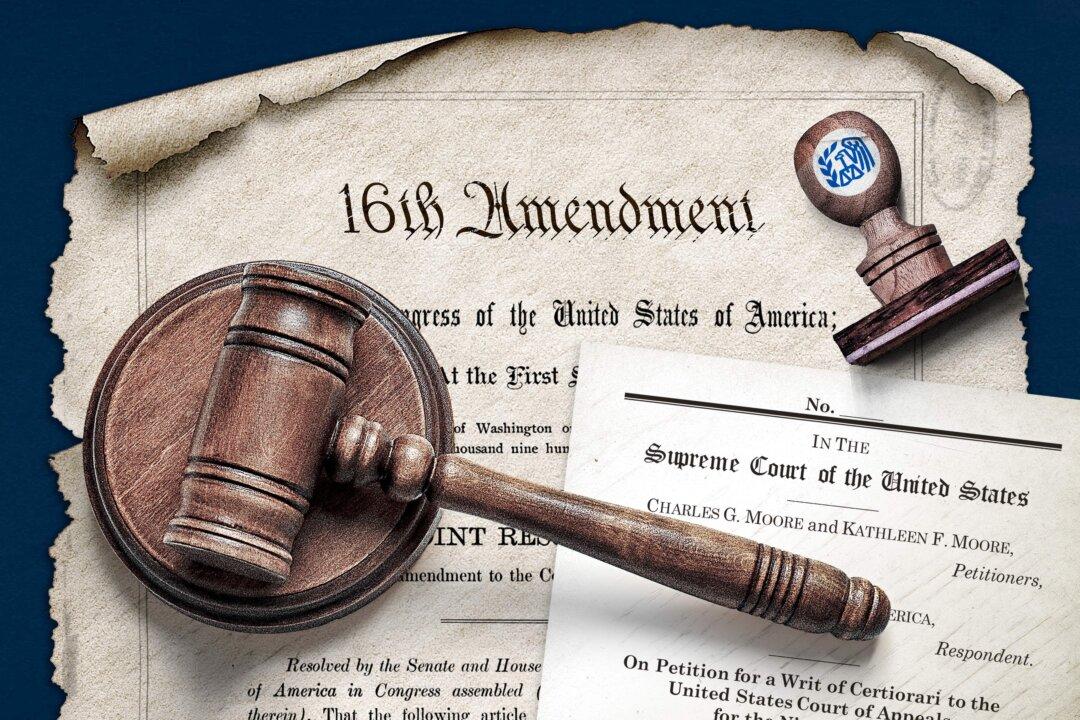Commentary
On Dec. 5, the U.S. Supreme Court heard oral arguments on a tax case that could broadly affect how the United States taxes income and whether the accretion of wealth in assets equals income.

On Dec. 5, the U.S. Supreme Court heard oral arguments on a tax case that could broadly affect how the United States taxes income and whether the accretion of wealth in assets equals income.